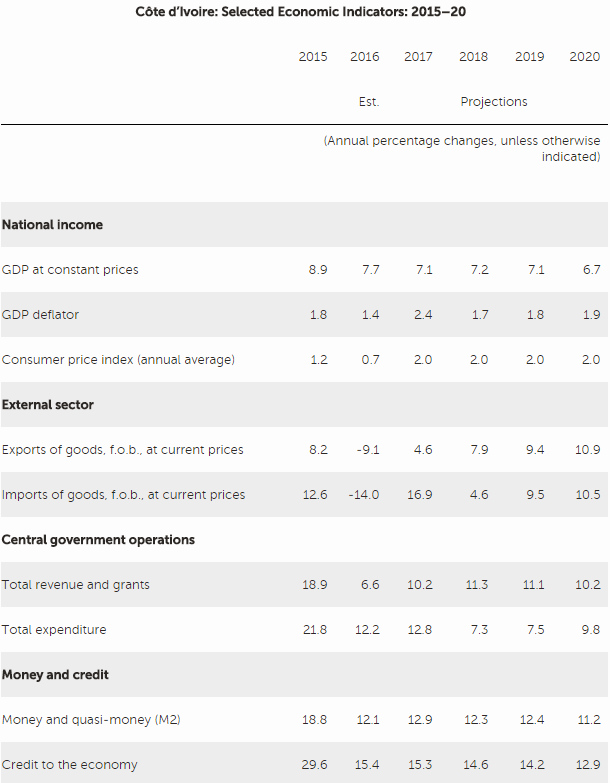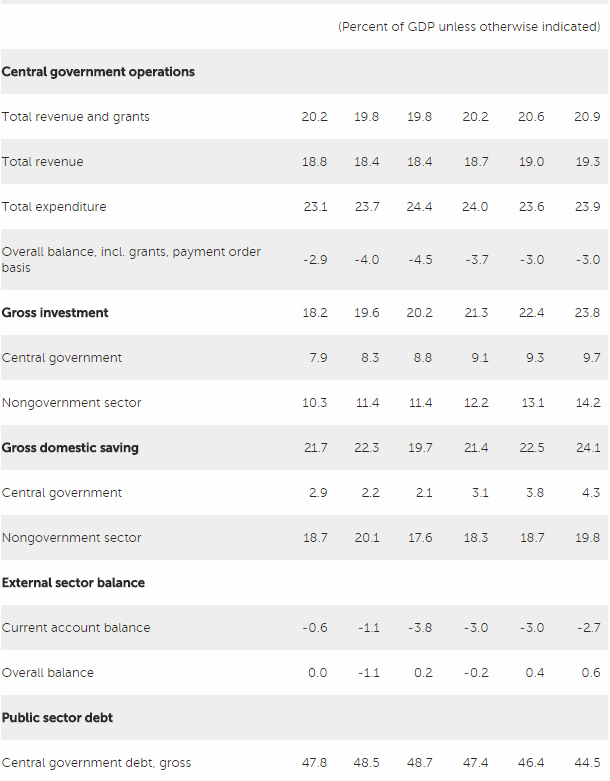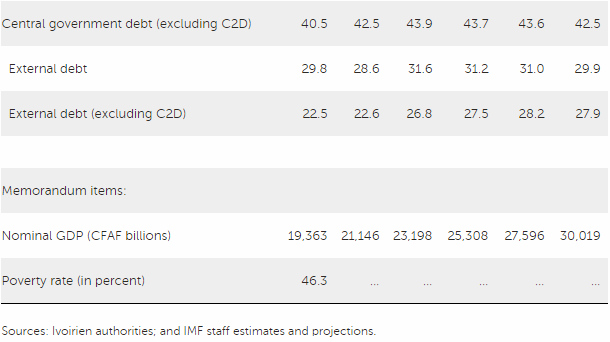IMF Executive Board Completes First Reviews Under the ECF and Extended Arrangements for Côte d’Ivoire and Approves US$133.8 Million Disbursement
● The country’s economic outlook remains strong, with growth projected at about 7 percent in 2017–19.
● Completion of the review enables the disbursement of $134 million.
● The ECF/EFF-supported programs aim at supporting the authorities’ efforts to achieve a sustainable balance of payments, inclusive growth, and poverty reduction.
On June 19, 2017, the Executive Board of the International Monetary Fund (IMF) completed the first reviews of Cote d’Ivoire economic program supported by three-year arrangements under the Extended Credit Facility (ECF) and Extended Arrangement under the Extended Fund Facility (EFF). The Board also approved an augmentation of access under the two arrangements by SDR 162.60 million (about US$224.8 million) or 25 percent of the country’s quota. The Board decision brings total access under the two arrangements to SDR 650.40 million (about US$899.2 million) or 100 percent of quota.
Completion of the review enables the immediate disbursement of SDR 96.786 million (about US$133.8 million), including SDR 27.10 million (about US$37.5 million) following the augmentation. This brings total disbursements under the arrangement so far to SDR 166.472 million (about US$230.1 million).
Côte d’Ivoire’s three-year, SDR 487.8 million arrangements (about US$ 674.4 million at the time of approval, the equivalent of 75 percent of Côte d’Ivoire’s quota in the IMF) were approved by the IMF Executive Board on December 12, 2016 to support authorities’ efforts to achieve a sustainable balance of payments position; inclusive growth, and poverty reduction; catalyze official and private financing; and build resilience to future economic shocks.
Following the Executive Board discussion, Mr. Furusawa, Acting Chair and Deputy Managing Director, stated:
“Côte d’Ivoire’s performance under its Fund-supported program has been satisfactory. The country has been hit by a substantial terms of trade shock and experienced social tensions earlier this year. Nonetheless, the country’s economic outlook remains strong, with growth projected at about 7 percent in 2017–19.
“The authorities have appropriately responded to the challenges by lowering the regulated cocoa producer price and adopting fiscal adjustment measures that aim to limit the fiscal deficit to 4.5 percent of GDP in 2017. The authorities have also reaffirmed their commitment to the convergence of the fiscal deficit to the WAEMU norm of 3 percent of GDP by 2019. Fiscal consolidation will be anchored on the implementation of new revenue measures starting in 2018 and containment of current spending while protecting pro-poor outlays.
“The authorities are improving public financial management and strengthening debt management operations with Fund technical assistance. To support fiscal consolidation, the authorities will need to address vulnerabilities in the energy and financial sectors. Structural reforms should also be accelerated to help improve the business climate and sustain robust and inclusive growth.”



Source: International Monetary Fund
- 307 reads
Human Rights
Ringing FOWPAL’s Peace Bell for the World:Nobel Peace Prize Laureates’ Visions and Actions

Protecting the World’s Cultural Diversity for a Sustainable Future

The Peace Bell Resonates at the 27th Eurasian Economic Summit

Declaration of World Day of the Power of Hope Endorsed by People in 158 Nations

Puppet Show I International Friendship Day 2020

